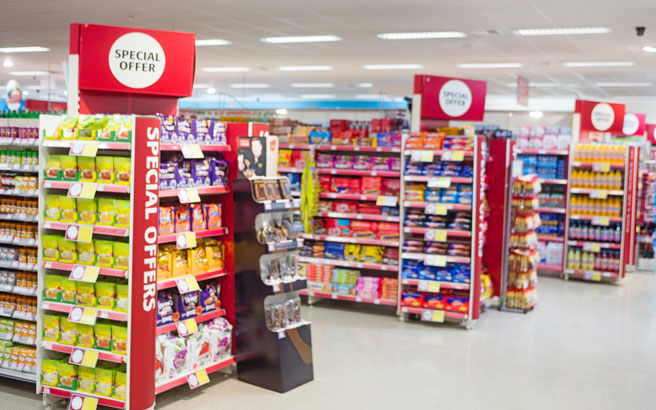On 14 May 2022, the UK government announced it was delaying promised legislation to ban multi-buy deals of junk food and pre-watershed advertising – a move that has been widely criticised by health campaigners. Here we examine what’s happening and the impact it may have.
Which policies have been delayed?
Two key pieces of legislation have been set back by at least 12 months. As of June 2023, The planned ban on “buy one get one free” (known as BOGOF) deals for food and drinks that are high in fat, sugar and salt (HFSS) has now been put on hold until October 2025.
The other change is the restriction on TV advertising of junk foods before the 9pm watershed, which was due to come into force in January 2023. This has now been delayed until January 2024.
What impact will the proposed legislation have when it finally comes into force?
The aim is that it will help to cut childhood obesity in the UK. Recent figures show that childhood obesity prevalence has risen to 1 in 4 of all 11-year-olds and the latest increase (announced in April 2022) is the largest since recording began in 2006–07.
The largest increases in childhood obesity prevalence were in the most deprived areas of England and children in those areas are twice as likely to be at risk.
Why have they been delayed?
The government has indicated that they were concerned about the BOGOF ban, given the current cost of living crisis, and wanted to ensure that families, in particular, aren’t negatively affected.
The government said: “Pausing restrictions on deals like ‘buy one get one free’ will allow us to understand its impact on consumers in light of an unprecedented global economic situation.”
But aren’t BOGOF deals helpful for families?
Although there are studies that show different results, much of the research indicates that multibuy deals on unhealthy foods don’t save people money. In fact, supermarkets themselves say that normal price cuts are better value than BOGOF deals on junk food.
And the government’s own impact assessments makes it clear that “although price promotions appear to be mechanisms to help consumers save money, data shows that they increase consumer spending by encouraging people to buy more than they intended to buy in the first place”.
How about online and TV advertising of food and drink HFSS?
There’s also strong backing for restricting this. Research carried out by the Children’s Food Campaign in 2018 showed that 9 in 10 parents supported the idea of a 9pm watershed on junk food marketing.
The watershed is particularly important as it will close loopholes that are being used to target children specifically.
A report by the World Health Organization shows that the marketing and advertising of HFSS foods affects children’s food preferences, what they want to buy and what they like to eat. So, if a child sees junk food being advertised, they’re more likely to want it.
Other research shows children are exposed to over 15 billion adverts for HFSS products online every year. This exposure is only set to surge with children increasingly spending more time online.
What does World Cancer Research Fund think about the decision?
Pushing back the introduction of the measures is a missed opportunity for much-needed action, with childhood obesity rates spiralling as a result of to the COVID pandemic.
This decision is not based in evidence and so we urge the government to bring in the legislation as originally planned to protect the health of children across the nation.
More than 30 organisations have united to voice their concern about the decision. Kate Oldridge-Turner, our Head of Policy and Public Affairs, said:
The numbers speak for themselves. Our government needs to make an urgent u-turn on its decision to delay anti-obesity measures, especially given its own impact assessment highlights that BOGOF offers drive purchasing rather than save money. Being obese increases the risk of developing 13 different types of cancer and we need to see more action from government to tackle this growing problem head on.
Update: Tesco goes ahead with BOGOF ban
Tesco has announced it will go ahead with axing volume promotions on HFSS products from October, regardless of the rowback by ministers on the proposals. Read more in The Grocer
> Read more about the link between obesity and the risk of cancer
> Ultra-processed food increases cancer rates, research shows

